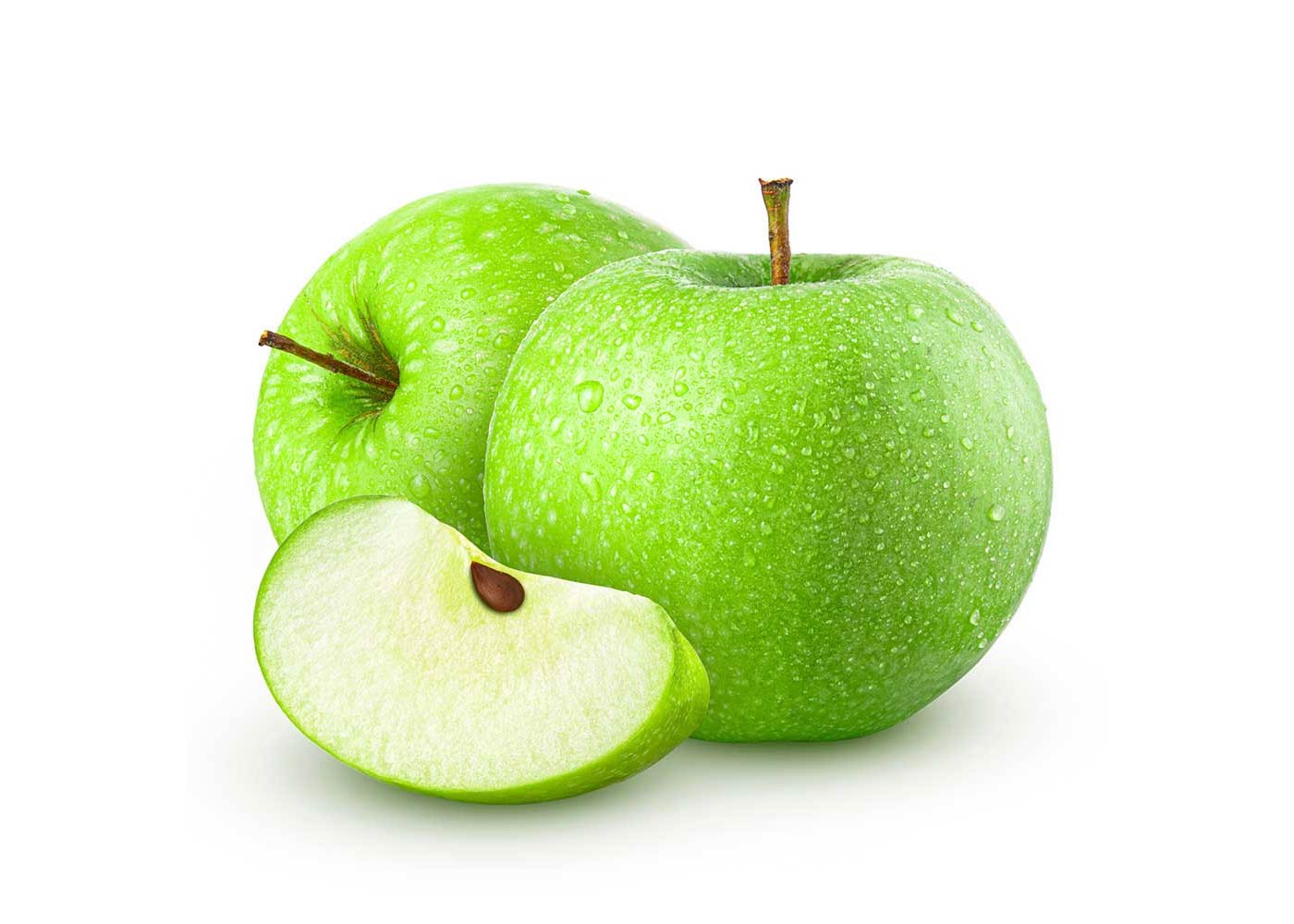Does "an apple a day keep the doctor away" actually apply? Evidently, your mother was correct! You can even inform her that apples have been shown to have numerous, well-documented health advantages.
Eating an apple a day is healthy advice that can do everything from preventing heart disease to filling up your stomach and lowering calorie consumption that contributes to weight gain.
Apples have numerous health benefits in addition to being delicious on their own or in cuisine. Culinary nutritionists claim that apples provide several health benefits, including improved gut health and a decreased risk of stroke, high blood pressure, diabetes, heart disease, obesity, and a number of cancers.
What Are Apples?
Apples are inexpensive and widely accessible in the UK. They come in a variety of types”there are over 2,000”and colors, from pale yellow and green to dark crimson. They are available in a range of flavors and textures, including juiciness, hardness, sweetness, and acidity. Although you may buy British apples pretty much year-round due to the wide variety, they are typically in season in the UK from September to February.
1. Strengthening Your Immune System
According to studies, the soluble fiber in apples may cause immune cells to transform into powerful anti-inflammatory agents, assisting us in speedier healing and infection resistance.
The next time you are fighting an infection, increase your soluble fiber intake and you will heal much more quickly. Additionally, it's a delectable strategy to enhance your health.
2. Prevent Cardiovascular Disease
The soluble fiber content of apples is closely related to their health benefits. This apple fruit is quite nutritious and has a high amount of soluble fiber. When soluble fiber enters the body, it dissolves in water and keeps its gel-like form. The bad cholesterol is flushed out of the body by the fiber because it adheres to it.
Taking at least an apple per day can significantly reduce your risk of having heart disease by as much as 50%, quoting a study in the Journal of Functional Foods. By eating an apple every day, participants' blood levels of LDL, a bad cholesterol, were decreased by 40%.
Since oxidative damage can lower LDL cholesterol and increase the risk of atherosclerosis, apples' polyphenol antioxidants are probably the most efficient at preventing it. A heart attack or stroke can be brought on by the condition known as atherosclerosis, which makes your arteries stiffen.
The healthiest diet for heart health and long life is one that is balanced and includes apples.
3. Apples Can Help You Manage Your Weight
The apple fruit is quite renowned as a major source of nutrition. Foods high in fiber can assist us battle weight gain and getting rid of extra weight. Researchers have discovered that apples are full and that eating them frequently helps people lose weight.
Apples consist mainly of water as their calorie density is quite low. An average midsize apple has 86% water. You feel fuller because of the high fiber and high water content. You are less likely to eat too much when you are already feeling full, which raises your confidence. When you are feeling more self-confident, you tend to make wiser decisions, such as choosing to eat apples. Eating apples is a good habit and healthy cycle to cultivate and which can really help you shed some unwanted weight in unfamiliar territory.
Consuming foods high in fiber may cause the digestive process to take longer, helping you to stay satisfied for longer and lessening your inclination to eat more. Try as much as possible to eat your apples natural without any form of processing. Apple juice, which might include a lot of sugar, may not be as filling and provide more calories than you require. The best option is to stick to full meals that are still in their original packaging.
Achieving and maintaining a healthy weight is the single most crucial thing you can do for your body to protect itself against a variety of diseases and effects.
4. Apples Can Help Prevent Cancer
The American Institute for Cancer Research discovered a correlation between apple fiber and polyphenol chemicals and a lower incidence of estrogen receptor-negative breast cancer.
Procyanidins, a particular class of antioxidants found in apples, may help to prevent precancerous lesions in the colon. It is reasonable to say that even if academics are currently looking into this association, eat your fruits and vegetables every day!
Eating apples is a healthy method to prevent the growth of particular types of cancer cells because of its high antioxidant content and anti-inflammatory qualities.
5. Apples and Osteoporosis.
All of us desire greater bone health. Consuming calcium-rich foods is a healthy method to maintain and increase bone density. But Phlordzin appears to be the new child in town when it comes to bone health.
Apples also include fiber and vitamin C, in addition to a unique flavonoid called phloridzin. According to French experts, phloridzin may protect postmenopausal women from developing osteoporosis. The study found that this specific flavonoid lowers inflammatory mediator production and may increase bone density.
As we get older, eating apples and other hard fruits might be difficult.
Thinly slicing the apple could be the simplest way to consume all that protective goodness as eating the skin is just as vital as eating the fruit. Apple juice and apple sauce appear to offer fewer health advantages, so for optimum bone density preservation, add some Fixodent to your choppers and start chewing on the real, raw apple.
Non-Organic vs. Organic
The best way to consume fiber and polyphenols is to eat your apple with the skin on. Buying organic apples can provide additional health benefits because you want to consume the skin.
When it comes to fruit that uses a lot of chemicals, apples are one of the Dirty Dozen. They appear to be included every year. Apples can contain a lot of toxins since many farmers use fertilizers to boost output, insecticides to stop insect damage, and herbicides to stop weed growth.
The best apples to buy are those that are certified organic. Things will be certified organic at the grocery store, but it isn't always so simple at your neighborhood farmers market. Many small farmers cannot afford the high cost of earning an organic certification. Your produce is still grown organically, despite this. Ask your food vendor about their growing procedures; you might be astonished to learn that their apples and other products are grown organically or almost so, making them a better and more reliable source of food.
The best method to ensure that your fruits and veggies include all the organic benefits is to grow them yourself. Start practicing your green thumb by planting a tiny organic garden or even a patio planter with tiers.
If you can't get hold of organic apples, make sure you scrape the apple skin well before eating.
Grow Apples on Your Own
Grow your own apples for the best apples on the table. You may play with a huge number of alternatives, manage the number of chemicals used on the trees, and eat the most deliciously fresh apples you've ever tasted. Observing the trees develop, bloom, and provide fresh fruit for consumption is enjoyable.
Any home gardener or orchardist will find apples appealing because they may be grown in a wide range of USDA Hardiness Zones. You can discover the ideal apple for your home planting, from Granny Smith to Red Delicious. For gardeners with limited area, certain apple trees can even be grown in patio pots.
Put apples on the menu.
It's easy to include apples in your everyday diet. Choose one to serve as your go-to midday snack. Whatever way you cut them, the health benefits are evident; a diet strong in fiber and low in calories is the ideal mix for a nutritious snack. They can be sweet and juicy or acidic and crunchy.
Try to avoid using apples in recipes that have a lot of added sugar while cooking with them. Even while apple pie may taste delicious, the lard-filled crust and sugar-coated apple slices have no positive effects on your health.
Consequently, give up the apple pies, apple brown butter, calorie-dense apple juice, and high-sugar apple sauce in favor of the freshest, most organic apple you can find. Then cheerfully chew away while knowing that the vitamins, antioxidants, and other nutritional goodness apples provide are nourishing your body.
How Many Apples A Day Should You Eat?
Children should eat fruit according to their age and gender. For most children above the age of 4, it ranges from 1.5 to 2 cups.
The Dietary Reference Intakes (DRI) for fiber is 25“30 g/day for young adults and above. Insoluble fiber (3.1 g/1 medium apple) and soluble fiber (1.3 g/1 medium apple) are both present in apples (with skin).
Eating 2-3 little apples or 1 medium-sized apple a day looks appropriate when taking into account fiber consumption from other sources such as vegetables, liquids, and meat.
Do Apples Have Side Effects After Eating Them?
- Apples could make you feel bloated if you have fructose intolerance. You might also have nausea, diarrhoea, and pain.
- You should also avoid apples if you are sensitive to plums, pears, apricots, or any Rosaceae member.
- Apples may be safe for expectant and nursing mothers. But there isn't enough proof to support this claim.
- Additionally, little is known about or has been studied on how drugs interact with apples.
These side effects have received less research. As a result, for appropriate dosage and method of intake, see your physician or nutritionist.
In Conclusion:
Apples are nutrient-dense fruits with strong antioxidant and anti-inflammatory properties. They also have a lot of phytochemicals and fiber. Apples may aid with weight loss, heart health, brain health, treating aging skin, reducing acne, and controlling blood sugar levels. Excessive use, however, may result in unfavorable side effects such bloating, diarrhea, and pain. People who are allergic to pears, apricots, or plums should also avoid eating apples. You'll benefit if you use them cautiously over time.
If you wish to contribute to our blog, please email us on morhadotsan@gmail.com.























